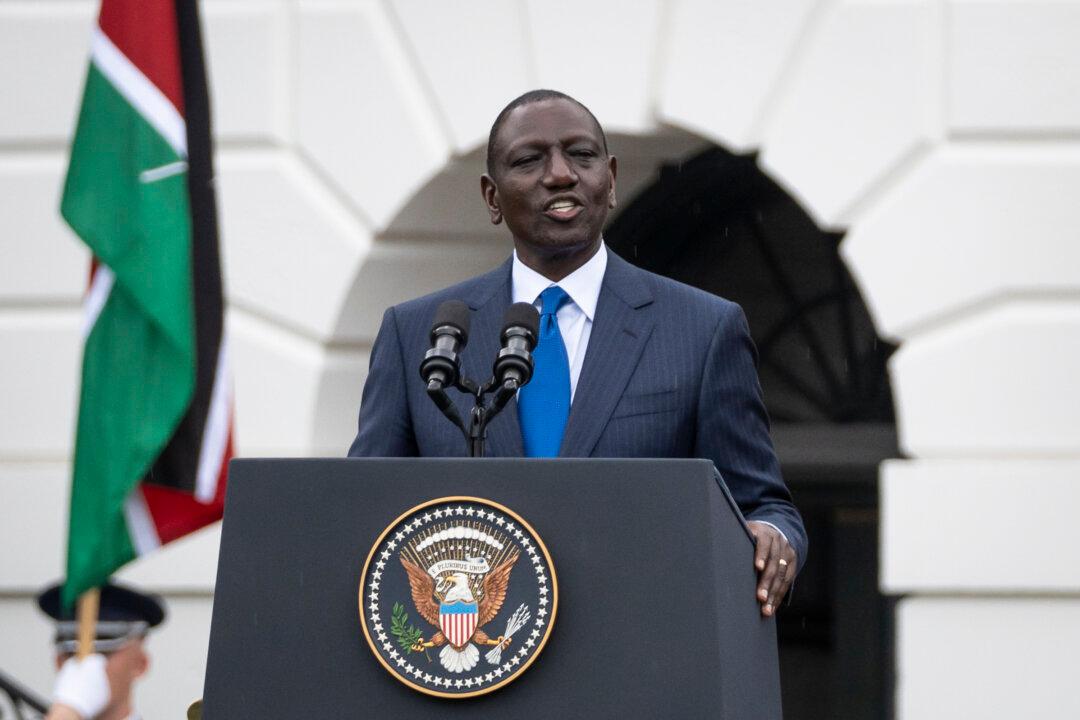The Congressional Black Caucus (CBC) called out House Speaker Mike Johnson (R-La.) on Wednesday for declining to invite Kenyan President William Ruto to address a joint session of Congress this week.
Mr. Ruto was on a three-day state visit to Washington, where he met with President Joe Biden and attended a state dinner, making him the first African president to make a state visit to the White House since 2008.





